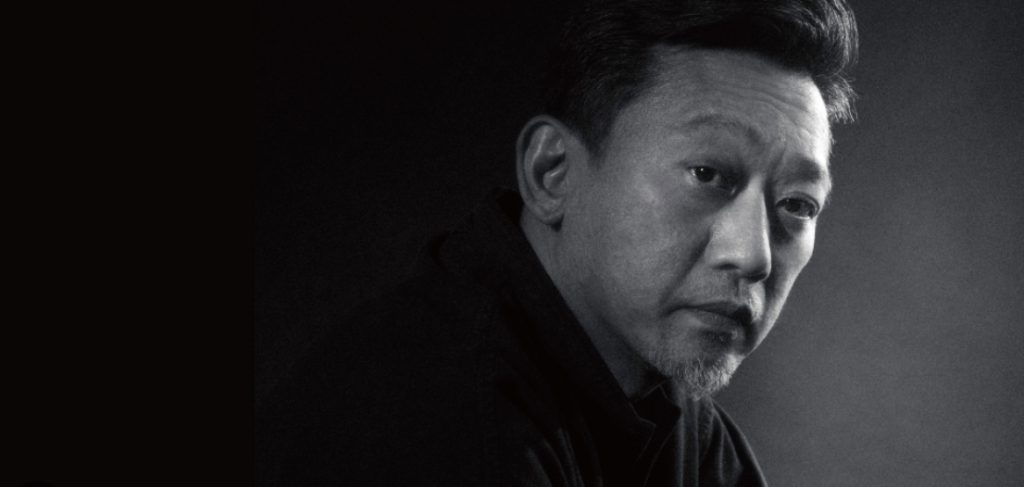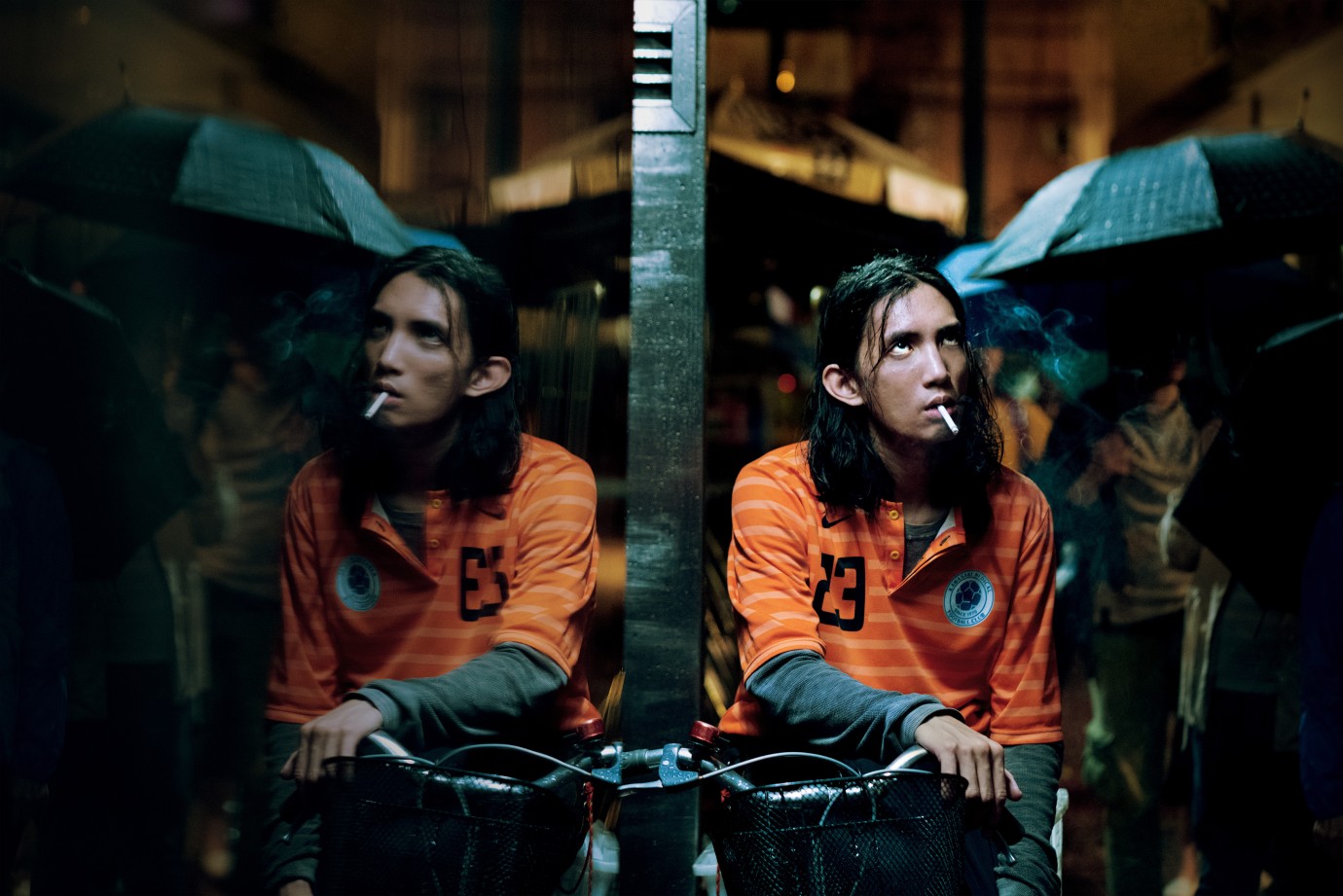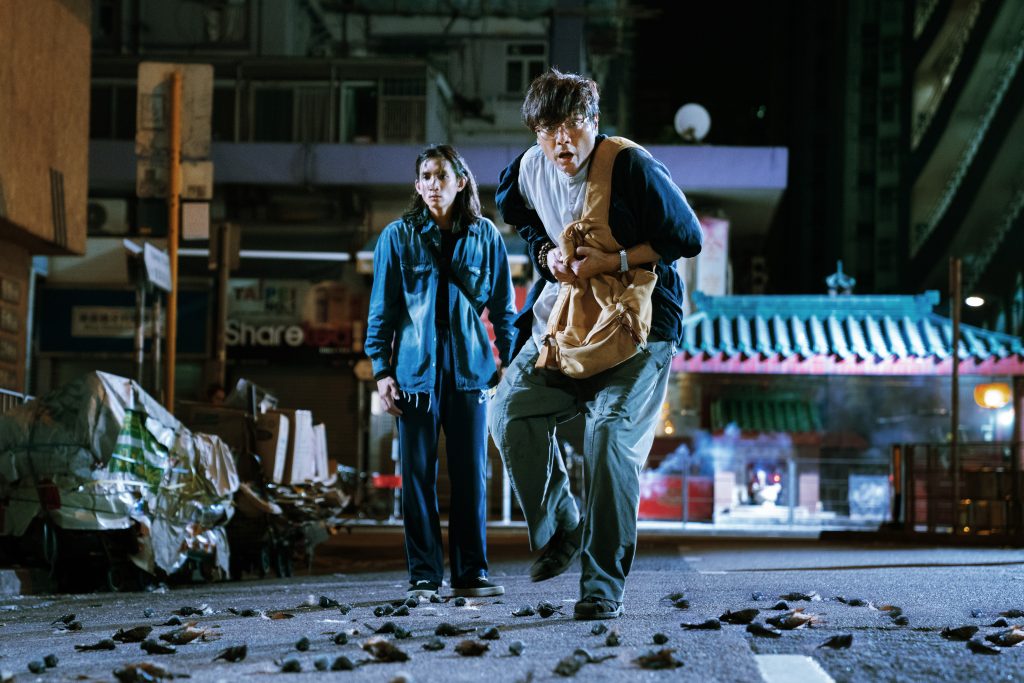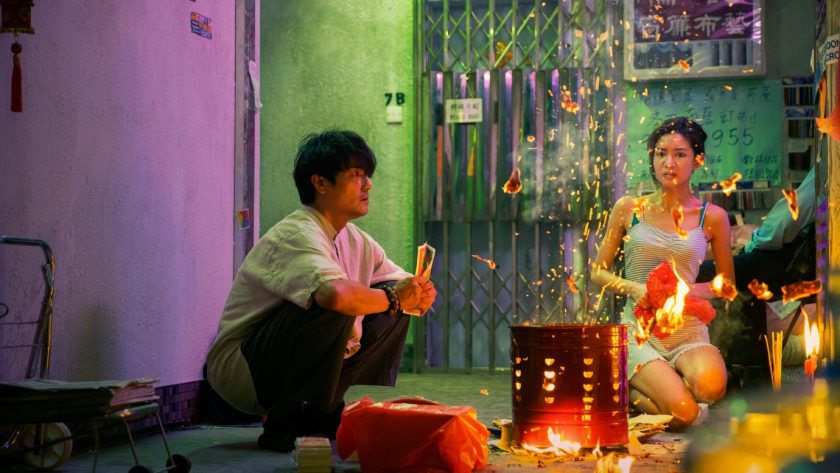The FilmSoc Journal is back for the 73rd edition of Berlinale, with critic Aryan Tauqeer delivering a look at the hits and misses of the upcoming 2023-4 season of cinema.
Amongst the massive array of genre films populating the Special curation of this year’s Berlinale, one of the most striking is Ming On (Mad Fate), directed by Soi Cheang. The celebrated Hong Kong director’s brutal, haggard mode of crime drama- which he last visited in Limbo two years ago- serves as the canvas for a heady supernatural thriller, characterised in equal terms by flesh-rending bloodshed and slapstick comedy. An often hapless and neurotic Feng shui master (Gordon Lam), haunted by visions of carnage, tries to change the violent fate of a brooding, antisocial young man (Lokman Yeung), as their paths cross with a washed-up cop with a chip on his shoulder (Berg Ng) and a conniving serial killer (Chan Charm Man Peter).

Beginning his career as Johnnie To’s protégé (a relationship he has maintained in the form of consistent collaborations including Mad Fate, which is executive-produced by To), Cheang has dabbled in just about every genre mode there is- from the vampire vehicle New Blood to the blockbuster Monkey King trilogy, his directorial talents have lent themselves to projects with budgets from the minuscule to the massive. It is his tales of ravage and resilience in Hong Kong, however, which he continues to return to. Desperation, being stretched beyond the limits of one’s physical endurance and the crushing weight of Hong Kong itself upon his characters are common motifs, from the martial arts melodrama SPL II: A Time for Consequences to moody slow-burn thriller Accident. In his newest film, Mad Fate, Hong Kong is haunted by storms that pulsate with the glow of negative karma, casting the rain-splattered alleyways and grungy, neon-lit underbelly of the city in an ominous hue. In a conversation with Soi Cheang and the film’s two leads, Gordon Lam and Lokman Yeung, Aryan Tauqeer Khawaja talks Hong Kong, fate and sinking one’s teeth into a role.
JOURNAL: How did the idea of making a film about fate come about in the first place? Was it something you had already been considering making for a while or was the idea a recent development?
SOI CHEANG: The script was written by Yau Nai-hoi, and he came up with this concept in 2008, actually. But he worked on the script bit by bit. And then in 2020, because of the pandemic, Hong Kong had to stop many projects. So Johnnie [To] asked him whether he wanted to start this project and we both were happy with it. So, we just decided to do it. To answer your question as to why it is about faith: first of all, the Milky Way image. They have already produced a lot of films with such topics about fate, and also, and as for Yau-he wanted to give another perspective on this topic. So that’s why they went ahead with this project.
JOURNAL: I was wondering what you thought of the story when Yau Nai-hoi pitched it to you originally, because in terms of tone, it is very different from some of your other films.
SOI CHEANG: When I first got the script from Yau, I loved it. Of course, we did make changes to the script from time to time. And it is very different from the genres that I have done before. So at the very beginning of the production, I was quite- I felt quite powerless and quite lost in the process. And of course, we did encounter initial failure in the process [of making the film]. Because after we’ve done the first scene, we know that we cannot do the same style or tone for the second scene. So that’s why after a while we decided to let go of the rules and just experiment with it.

JOURNAL: As with many of your other films, Mad Fate is as much about a city as it is about the people living in it. I wonder if you could talk about the difference in the way you shot Hong Kong in this film compared to the way you have shot it in your other films.
SOI CHEANG: When making the film, I had only one objective: to talk about God, and this objective, this idea, had been in my mind throughout the process. And that’s why you can identify a theme, you can see locations in graveyards that represent life and death. And you can see the temples that represent hope because people go to temples to hope for something. Then, you also see in the place where the Feng shui master lives- on the rooftop that there are many satellite dishes, and the dish represents communication with God.
JOURNAL: In the film, there’s a lot of attention paid to particular feelings and sensations. Like when Lokman’s character steps on a puddle of blood, or when he’s sniffing the dead bodies. I was wondering what the process was behind directing these scenes where people are feeling or sensing things.
SOI CHEANG: Directly [laughs]. I see the character himself as just doing everything directly. Because this character, he’s not quite a human being. And that’s why when he’s sniffing bodies or steps on the blood, it’s just an act that um, normal people just don’t do. It’s not normal behaviour. But to give a rationale as to why this character can do it- when I direct Lokman, I just ask him to do it because Lokman trusts me or and we trust each other.
JOURNAL: My next question is for Lokman. So, you have an incredibly powerful presence in the film- even when you’re silent, his eyes communicate so much agony and paranoia. But at the same time as playing a silent character, you’re able to portray a very animalistic persona, a very primal persona. So I was wondering what it was like being directed by Mr. Cheang. When you were performing, how did you shift so efficiently from this silent loner to this almost non-human persona?
LOKMAN YEUNG: First of all, to answer your question about the stepping-in-blood act: I just imagined myself as an animal. Actually, this part was easy for me to do [laughs]. Then, I just convinced my character that “oh, I love the blood, I love the blood, and I’m an animal”. And then for the silence part: he’s just adapting to the environment and I just assume myself that he’s always thinking something about what he is looking for. For example, in a scene between the hooker and the Feng shui master, they were burning the paper for the dead hooker. Meanwhile, my character was standing behind it and witnessed everything. Then he just looks at it and assumes what he should feel when it has happened.

JOURNAL: My next question is for Gordon. Gordon, you’ve played an enormous range of roles in Hong Kong crime films, especially in the films of Johnnie To and Mr. Cheang’s last film, Limbo, where you played a brooding, morally conflicted cop. However, your performance in Mad Fate operates on a very different tonal register. He’s not a professional at all in this case. He’s often helpless and overwhelmed by the world around him. I was wondering what it was like playing this role in Mad Fate compared to how it was for you playing his role in Limbo, since your characters in crime films always know what to do, but in this case, it’s very different.
GORDON LAM: I think that every person has a status of some sort, and when they need hope, they come to God. They come to find God, such as when they have a lack of confidence. This is something very common for anyone like that, but someone who is always very confident, they don’t need a Feng shui master. This is how I understood my character. So, the character is- I guess what you’re saying is that he’s professional when he’s helpful to people but he’s not always, say, very competent. But when people need him, when they rely on him, he is competent. What you just said now is correct because when he gives help to others, which means he trusts himself, and he’s also giving kindness to others, and that’s how makes himself feel very professional. That’s the moment you feel professional. Actually, in reality, when people come to find a Feng shui master, it’s hard to say how much the predictions will come true. But still, when you’re lost and you hear the consultation from the Feng shui master, you always agree with it. This is very accurate- actually, it’s very common in reality.
JOURNAL: So the sort of character you play here, a Feng shui master- he’s the sort of person you might meet in Hong Kong today?
GORDON LAM: Yes, that’s right.

JOURNAL: Mr. Cheang: throughout your films, these characters are placed under incredible amounts of stress, and face myriad personal crises that they don’t understand. These personal crises often occur because of the environment of the city surrounding them, because the city is placed under so much stress that in turn the city places stress on the characters. They are left beaten, bruised, and bereaved. Yet somehow your characters always persevere towards the end, they almost always make it. Does this have anything to do with your views on fate and faith- that your characters go through incredible trauma, but they somehow outlive it?
SOI CHEANG: I think that faith is something that’s already a set path, and it’s something already arranged. And that bad things always happen at the right moment. It is the best of times and it is the worst of times. And you never know what will happen next. And that is fate or God, but the question is how you can fight for it. That’s the attitude.
Mad Fate does not have a UK release date yet. You can watch the trailer for the film here:




